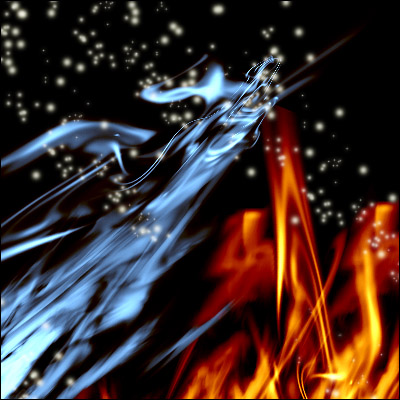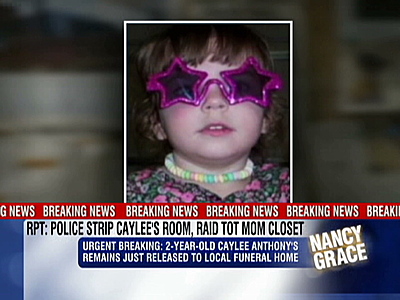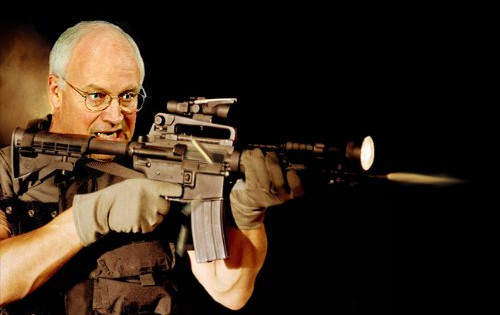

The chattel slavery of black Americans was an embarrassment to the commitment to liberty and equality embodied in the American Revolution. There is nothing more deeply embedded in the American ideology than the notion that ours is a free country. Slavery developed out of the earlier practice of indentured servitude, and at the dawn of the revolution, the peculiar institution had already been established, racialized and imbued with an unfortunate momentum which the founders found largely insurmountable. Many of the founders acknowledged that slavery was immoral and dangerous, but they failed to embrace immediate abolition as an alternative because they did not see it as practical.
The conception of slavery as necessary evil was a means for late-18th and early-19th century Americans to digest their fear of emancipation within the context of their republican, egalitarian ideals. The formulation, which attempted to resolve the contradiction between unfree labor and republican values, proved to be untenable. Incapable of containing its contradictory components, the necessary-evil consensus would come unglued, splitting between a conception of slavery as a positive good in the South, and a Northern condemnation of slavery as corrupt and degrading.
Before the 1820s, the necessary-evil theory came closer to describing the national consensus on slavery than any other position articulated before the Civil War. The consensus became decentered because of its internal contradictions. Figuratively, it proved itself a most uncomfortable fence on which to sit. To use a Biblical parallel, those that held slavery to be a necessary evil were trying to serve two masters: God and Mammon – their highest principles and the things of the world.
The necessary evil formulation allowed early Americans to digest their fear of emancipation within the paradigm of liberal, egalitarian values. In time this consensus would erode, as its proponents would be forced to confront either slavery’s inherent evil, or its supposed necessity.
PRIMARY DOCUMENTS:
Doc. #1: Letter from Thomas Jefferson to John Holmes. Monticello April 22nd 1820
" I can say, with conscious truth, that there is not a man on earth who would sacrifice more than I would to relieve us from this heavy reproach in any practicable way. The cession of that kind of property, for so it is misnamed, is a bagatelle that would not cost me a second thought, if… gradually, with due sacrifices, a general emancipation and expatriation could be effected. But as it is, we have the wolf by the ears, and we can neither hold him, nor safely let him go. Justice is in one scale, and self-preservation the other. "
In this letter, Jefferson remarks on the injustice of slavery. He seems hesitant to even refer to slaves as “property,” recognizing the corrupt nature of such thinking. Jefferson voices his own sincere wish that slavery would cease to be. He claims that he would “sacrifice more [than anyone] to relieve us” of the institution, but implies that the momentum of slavery was larger than any action he could take to end it. His “wolf by the ears” analogy illustrates the supposed horrors of emancipation he fears unleashing on the country. He is torn between his moral disagreement with slavery, and the practical matter of “self-preservation.” He understands that unfree labor is immoral and dangerous, but fears that immediate emancipation would unleash poverty, crime and economic disruption.
Doc. #2: “Mark Antony.” Boston Independent Chronicle, January 10th, 1788
" The friends to liberty and humanity, may look forward with satisfaction to the period, when slavery shall not exist in the United States; while the enlightened patriot will approve of the system, which renders its abolition gradual. "
In this letter from a Northern newspaper editorial, the author uses the pen name of “Mark Antony.” This letter was written in the immediate aftermath of the Constitutional Convention of 1787, and responds to another editorial by an author who bemoaned the tacit blessing given to slavery in the Constitution. The author acknowledges that the revolutionary paradigm oriented towards liberty and human equality is inconsistent with the institution of slavery. However, he notes that an “enlightened” patriot will go beyond his base American ideology and acknowledge the practical realities of emancipation. Because of pragmatic concerns, slavery’s abolition should be gradual and not immediate.
Doc. #3: Letter from John C. Wynkoop to Peter Van Schaack. Kingston, New York, February 23rd, 1792
" My head is too crammed with political, moral and electioneering stuff, that I can neither write grammatically nor intelligibly… My friend Mr. Jay… proposed as the illustrious opponent to Gov. Clinton at the next election, will, I fear, not have many votes from the Dutch Inhabitants in this Country. A great majority of these pose many slaves, and as Mr. Jay is the President of the society for the abolition of slavery, they will probably vote against him for that reason… The justice and propriety of his sentiments… affects the Freedom and Course of Happiness of thousands of our fellow Creatures, differing from ourselves only in complexion, have no Weight in the minds of men, many of whom are rich in property of this Kind… You will therefore in your calculation of electioneering success, set down this Country against you… "
In this letter, a Northerner discusses his friend’s plans to challenge the incumbent governor of New York, George Clinton. The author agrees with his friend’s abolitionist position on the slavery issue, but feels that taking such a stand will make his friend a sure electoral loser. He is torn between his “moral” thoughts and those related to the practical realities of “electioneering.” He endorses his friend’s belief that blacks and whites “[differ] only in complexion,” but since this sentiment holds “no weight in the minds of [the majority] of men,” he argues that it is a political stance doomed to failure.
Doc. #4: Letter from George Washington to Robert Morris. Mount Vernon, April 12th, 1786
"…When slaves who are happy and contented with their masters, are tampered with and seduced to leave them; when masters are taken unawares by these practices; when a conduct of this sort begets discontent on one side and resentment on the other, and when it happens to fall on a man, whose purse will not measure with that of the Society, and he loses his property for want of means to defend it; it is oppression in the latter case, and not humanity in any; because it introduces more evils than it can cure. "
In this letter, General George Washington has just finished explicating the immorality of slavery as an institution. After having thoroughly condemned the practice as dangerous and evil, he considers the problematic nature of immediate emancipation. He describes the chaos that would occur in terms of both masters being rudely stripped of their “property,” and of slaves “happy and contented with their masters” who are suddenly uprooted. Washington acknowledges that slavery is evil, but worries that immediate emancipation might “[introduce] more evils than it can cure.” He feared the economic disruption that might accompany immediate emancipation more than he valued the immediate realization of republican values.
Doc. #5: John C. Calhoun, "Speech on His Slavery Resolutions in Reply to James F. Simmons," Floor of United States Senate. February 6th, 1837.
" Let me not be understood as admitting, even by implication, that the existing relations between the races in the slaveholding states is an evil-far otherwise; I hold it to be a good, as it has thus far proved itself to be both, and will continue to prove so if not disturbed by the fell spirit of abolition. We now believe it [slavery] a great blessing to both of the races-the European and African… The proposition to which I allude has become an axiom in the minds of a vast majority on both sides of the Atlantic, and is repeated daily from tongue to tongue as an established and incontrovertible truth; it is that "All men are born free and equal" ... It is utterly untrue. "
John Calhoun was a House Representative, Senator and eventually Vice-President of the United States. In the Senate, he represented the state of South Carolina. Other Americans formulated slavery as a necessary evil, but Calhoun rejected this line of thinking as well as the liberal, egalitarian foundation on which it was based. Calhoun conceived of slavery as a positive-good, one that offered benefits to blacks and whites, slaves and free men. Based on white supremacy and paternalism, Calhoun reasoned that slavery offered white people the benefits of slave labor, while blacks could be cared for and civilized under the direction of white masters. To him slavery was not a necessary evil but, instead, “a great blessing to both of the races- the European and the African.” Calhoun rejected the liberal, egalitarian ideology as being “utterly untrue.” Though Calhoun’s thinking is offensive within the context of a liberal, republican paradigm, his thinking possessed an internal consistency that the necessary-evil theorists lacked.
Doc. #6: Campbell, John. Negro-mania: Being an Examination of the Falsely Assumed Equality of the Various Races of Men. Philadelphia, 1851.
" Let us now carefully scan the flimsy arguments offered to our notice by the advocates of negro equality. The first argument is “that the negroes never have had an opportunity to develop themselves because the white man has always oppressed them.” They forget that the latter proportion refutes the former. If the white man has always oppressed the negro, it goes to establish the fact claimed by me that the white man is mentally superior, because, if the white man has been always powerful enough to debar the negro from improving his intellect, it establishes the complete force of my views. "
This excerpt comes from a book by the white supremacist John Campbell. He, like John Calhoun, debates takes issue with the liberal, revolutionary principle of universal human equality. He points to the black man’s state of slavery as self-evincing proof of the black man’s inferiority. This book was published in 1851, a time in which abolition was becoming increasingly charged as a moral issue. Campbell attempts to deflate the calls for immediate emancipation by showing that slavery is not evil at all since blacks are not the equals of whites.
Doc. #7: William Lloyd Garrison. “On the Constitution and the Union.” The Liberator, December 29, 1832. 207.
" People of New-England, and of the free States! is it true that slavery is no concern of yours? Have you no right even to protest against it, or to seek its removal? Are you not the main pillars of its support? How long do you mean to be answerable to God and the world, for spilling the blood of the poor innocents? Be not afraid to look the monster Slavery boldly in the face. He is your implacable foe—the vampyre who is sucking your life-blood—the ravager of a large portion of your country, and the enemy of God and man. Never hope to be a uited, or happy, or prosperous people while he exists. He has an appetite like the grave—a spirit as malignant as that of the bottomless pit—and an influence as dreadful as the corruption of death. Awake to your danger! the struggle is a mighty one—it cannot be avoided—it should not be, if it could. "
William Lloyd Garrison was a preacher and one of the main advocates for immediate abolition. In this excerpt from an early edition of his abolitionist publication, he argues that slavery is not necessary, and that, in fact, its downfall is inevitable. Abolition “cannot be avoided,” Garrison argues, and that even if it could, “it should not be.” Garrison charged the slavery issue with a moral energy which had not previously carried. Garrison states that the enormous evil of slavery outweighs whatever minor inconveniences might accompany abolition. For Garrison, slavery is “a monster,” a “vampire” and an “enemy of God.” This shows that while some Americans moved away from the necessary-evil conception of slavery by viewing it as a positive-good, others, particularly in the North, were beginning to view it as a definitive evil. They were unwilling to compromise their commitments to human equality and freedom with the supposed property rights of slaveholders.
Doc. #8: William Lloyd Garrison. “Truisms.” The Liberator. January 8, 1831, p. 5
"1. All men are born equal, and entitled to protection, excepting those whose skins are black and hair woolly; or, to prevent mistake, excepting Africans, and their descendants……
4. The color of the skin determines whether a man has a soul or not. If white, he has an immortal essence; if black, he is altogether beastly…
11. None but fanatics or idiots desire immediate abolition. If the slaves were liberated at once, our throats would be cut, and our houses pillaged and burnt! …….
15. A white man, who kills a tyrant, is a hero, and deserves a monument. If a slave kills his master, he is a murderer, and deserves to be burnt.
16. The slaves are kept in bondage for their own good. Liberty is a curse to the free people of color—their condition is worse than that of the slaves! "
In another excerpt from William Lloyd Garrison’s Liberator, the author sarcastically skewers the arguments against immediate emancipation. Everything Garrison writes here is meant to point out the internal contradiction of the necessary-evil argument. He writes “all men are born equal, and entitled to protection, excepting those whose skins are black and hair woolly.” Here, he points out the inconsistency between slavery and a nation based on freedom and equality. Garrison points out the corrupt paternalism of the necessary-evil formulation, writing that “slaves are kept in bondage for their own good. Liberty is a curse to the free people of color.” “A white man who kills a tyrant,” Garrison sarcastically posits, “is a hero, and deserves a monument. [Yet] if a slave kills his master, he is a murderer, and deserves to be burnt.” Garrison points out the hypocrisy of a nation born in an act of rebellion against the supposed tyranny of being governed by an alien power, yet imposes white tyranny on black slaves
CONCLUSION:
Thomas Jefferson and many of his contemporaries recognized that slavery was the most dangerous and intractable problem our infant nation faced. He wrote that “slave owners are despots and slaves their enemies .” Slavery was recognized as dangerous and immoral, particularly in the North where early 19th century thinkers argued that it inhibited economic development, undermined the virtue of all Americans, and imperiled national security. However, these people were not able to move from their distaste for slavery to a call for immediate emancipation because of respect for the property rights of slaveholders and contempt for black people’s capacity for citizenship.
As of 1790, of the 3.9 million Americans, 700,000 of them (or 15%) were enslaved . The thought of emancipating all these blacks meant not only a massive loss of property, it also presented the prospect of widespread poverty and crime.
The conception of slavery as necessary evil was a means for late-18th and early-19th century Americans to balance their fear of emancipation with their republican, egalitarian ideals. The formulation, which attempted to resolve the contradiction between unfree labor and republican values, proved to be untenable. Incapable of containing its contradictory components, the necessary-evil consensus would come unglued, splitting between a conception of slavery as a positive good in the South, and a Northern condemnation of slavery as corrupt and degrading. The necessary evil formulation allowed early Americans to digest their fear of emancipation within the paradigm of liberal, egalitarian values. In time this consensus would erode, as its proponents would be forced to confront either slavery’s inherent evil, or its supposed necessity.
































